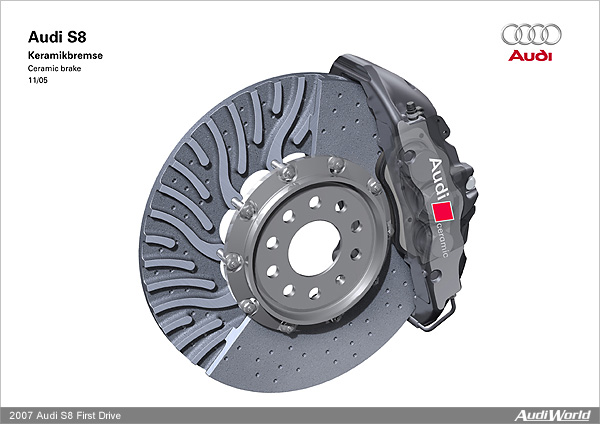Fitting the right brake pads to your car can notably improve its performance and ceramic brakes are probably the best kind of brake pads on the market, but what are the repercussions of fitting them?

With vehicles featuring disc brakes, each of the wheels is linked to a brake rotor that turns with it. Upon depressing the brake pedal, the brake caliper puts pressure on the rotor and causes it to slow. As a result, huge levels of friction are created. A brake pad is essentially a friction buffer between caliper and rotor.
Advantages of Ceramic Pads
Ceramic brakes are made from a mixture of copper and ceramic and produce very little brake dust, which prevents the accumulation of debris on the wheels. They can deal with higher temperatures than brakes made of other materials, which increases the life of the whole braking system and hence enhances driver safety.
Ceramics are very good at dissipating heat and this makes for a consistent brake performance and pedal feel. Although ceramic pads are often used in high performance cars, they are also suitable as every day brakes. Ceramics are also more environmentally friendly than their alternatives and they have none of the groans, creaks and squeals which can sometimes cause problems associated with traditional brake pads.
Ceramic pads do not gradually become less effective as they wear out but perform as well as they did on day one right up until the end of their natural life. This means that they need changing to a schedule and not in response to decreasing performance, which can mean that they are very cost effective when compared to the frequency with which regular brake pads need to be changed.
Disadvantages of Ceramic Brake Pads
Inferior ceramic pads are not worth buying, as they contain only a small proportion of ceramic material and will not confer the advantages listed above. You need to choose brake pads with a ceramic component throughout. Ceramic brake pads are not cheap, so it is well worth making sure that you get your money’s worth.
Ceramics also require some warming up time before they will grip the rotor fully and give a smooth stop. Alternative brake pads do no not require this warm up time.
If you are unsure which type of pad is best for your own vehicle, it is worth consulting an established supplier of brake pads who’ll be only too happy to help.
This article is by Damien Lewis, an experienced motoring journalist with more than thirty years in the auto trade. He writes a successful blog and also authors many articles for national newspapers and motoring magazines. He recommends www.ebcbrakesdirect.com for replacement brake components.
